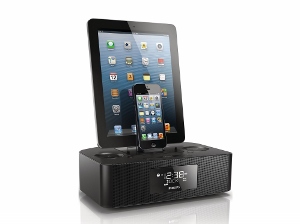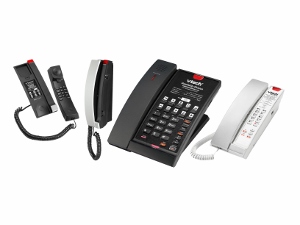
Delight your guests with in-room viewing options
Broadcasters are no longer in charge of global viewing habits and if you haven’t noticed that the worldwide home entertainment industry has been transformed then you must live in a tech-free bubble!
Year 2014 has seen a massive increase in the availability of home entertainment choice and access via the Internet. Consequently consumers are now able to absorb an enormous amount of film and TV content through online DVD rental, downloading, instant streaming and IPTV.
There is a convergence of multimedia supply and many hospitality industry guests will already have this thriving technology at home. Smart TVs are outselling normal TVs in the consumer market – they are quite simply TVs with Internet access that permit Internet browsing just like a computer.
A smart TV offers a number of Internet connected activities that normal TVs do not have such as, apps, media streaming and games and they have become more affordable as their popularity grows. They allow users to customise their TV entertainment experience by using apps and social media and they can work with their PCs, mobile phones and notebooks. Smart TVs can also be coupled with other advanced features like high definition or even have 3D capabilities.
Some also offer Skype and come equipped as an IPTV which is a type of Internet video that allows a continuous stream of video via the Internet to the TV. In addition, some smart TVs use a system called DLNA (digital, living, network, alliance) this allows the streaming of media from a personal computer or phone through the smart TV without the use of a USB.
This begs the question that if the domestic TV market has changed beyond recognition, does it mean that the accommodation industry needs to be part of this revolution?
It certainly sounds like it. And Paul Yardley whole heartedly agrees. He is the managing director of Yardley Hospitality, a company that has been a key supplier to the hospitality industry throughout Australia since 1999. Mr Yardley certainly has his finger on the industry pulse, having seen every trend come and go over the years. His wisdom has developed over a long history of knowing what needs to be supplied to the industry and understanding what guests want from their accommodation providers.
 For Yardley Hospitality quality and competitive pricing are always key factors when tailoring a complete package of electrical appliances to suit hospitality industry needs. He has provided Australian hotels with the complete package, everything from TVs and docking stations to white goods, small appliances, vacuum cleaners and much more.
For Yardley Hospitality quality and competitive pricing are always key factors when tailoring a complete package of electrical appliances to suit hospitality industry needs. He has provided Australian hotels with the complete package, everything from TVs and docking stations to white goods, small appliances, vacuum cleaners and much more.
Paul Yardley explains that this experience is why he is proud to partner with Samsung. Every year Samsung takes pride in launching new TV models and products designed to help enhance the users experience and productivity. The Premium HG690 and Luxury HG890 Series help to create a luxurious guest room experience.
Mr Yardley suggests that the size of your guest room TV is definitely an important factor when it comes to guest satisfaction and although size is partly dependent on the dimensions of the room and the distance from where the TV is positioned in relation to the guest, trends are larger screen sizes, smart TVs, connectivity and sound.
Mr Yardley highly recommends that accommodation providers stick to respected brands because not only have guests become more selective about the brands that they would personally have in their own homes but they also expect to see these brands when they stay at a hotel. For providers, a well-known brand will give them the reassurance of an excellent warranty plus tried and tested quality assurance.
It is tremendously important for the industry to embrace a progressive attitude, particularly if businesses want to appeal to the Gen X and Gen Y traveller. This 18-34 age bracket forms the loyal industry guest of the future and it is a very tech savvy generation that expects a wider choice of in-room entertainment technology. It is only natural that all guests follow the trends that are set in their everyday life and accommodation providers need to meet their guest’s expectations head on.
To do this they need to purchase industry specific technology of the highest quality only and it is highly recommended that they choose from the leading brands of smart TV such as Samsung, Philips and LG so they are guaranteed the best advice, the most up-to-date industry specific technology, reliability and longevity. Follow this advice and accommodation providers will have a platform and solution that will serve them well, now and into the future, allowing them to add features and functionality as required. This is a smart long-term strategy that will keep the industry on-trend and ahead of the crowd to ensure guest satisfaction.
So when guests arrive with a mountainous in-room entertainment expectation do you really want to let them down? I suggest not. The accommodation industry needs to puts its guests at the centre of the entertainment experience and offer great HD content, support streaming applications and assist the guest to utilise their own content.
When it comes to purchasing, the price should never be a deterrent. The advice is to purchase the best and most up-to-date system that can be afforded and considering the reasonable price of smart TVs now, with options to buy, lease or rent, this may be the time to consider an upgrade.
 Jamie Hind is the managing director for the digital media solutions provider, Tripleplay Australasia and he says, “Pleasing as many guests as possible without spending a huge amount of money has always been a challenge. But now with the technology and the advent of the smart TV things are changing for the better for guests, accommodation providers and vendors alike.”
Jamie Hind is the managing director for the digital media solutions provider, Tripleplay Australasia and he says, “Pleasing as many guests as possible without spending a huge amount of money has always been a challenge. But now with the technology and the advent of the smart TV things are changing for the better for guests, accommodation providers and vendors alike.”
Mr Hind explains that Internet enabled smart TV has been a “game changer in guest entertainment. That it has opened up the possibility to wirelessly connect personal devices and content to any television screen. This should be seen as a huge opportunity for the accommodation industry to provide that “something extra”.
He says, “It has also given traditional hotel TV system providers something to think about and has given us in digital media a challenge to create a stable platform to provide all of the features hotels have become accustomed to.”
This includes hospitality services such as: information channels, room billing, flight information, branded user interface, room service ordering, personal video recording and video on demand content. This is in addition to allowing the user to connect personal devices and to smart apps for Facebook, YouTube and Twitter. He adds, “Tripleplay was actually the first hospitality TV provider to produce and implement a stable guest portal for smart TVs in a live environment with over 30 sites worldwide using the technology.
“The integration of apps onto a smart TV or hospitality TV portal opens up the possibility for guests to log into their social media accounts or visit other on-demand web services, providing a broader spectrum of content for viewing.”
Mr Hind maintains, “I guess, the key for any hotel is to provide options, every guest is different with different expectations, technical abilities and demands, catering for all can be tough, but there are platforms out there that can enable all of the above in a pain free manner.”
In addition to Tripleplay’s own solutions and options they also work alongside a number of hospitality industry global leaders such as Intelity ICE and iRis. This allows food ordering, turn down, taxis, check out, room bill, amenities and all the back of house statistics to be done via the TV. The lesson here is choice and Mr Hind stresses, “The ability to deliver a truly tailored, cost effective solution is the key.”
Internet protocol television is transmitting audio and video over a computer network instead of air-waves with an aerial. It first appeared in 1994, the ABC’s World News Now was the first television show to be broadcast over the Internet, using the CU-SeeMe video conferencing software and the term IPTV first appeared in 1995. It is digital television delivered via a high speed Internet (broadband) connection, channels are encoded in IP format and delivered to the TV through a set top box.
IPTV service also includes video on demand, which is similar to watching video CDs/DVDs using a VCD/DVD player. IPTV covers both live TV (multicasting) as well as stored video (video on demand or VOD). The playback of IPTV requires either a personal computer or a set-top box connected to a TV.
The advantages of IPTV are that the quality of digital video and audio is much better compared to traditional analogue TV and the additional features means that it can be interactive. Viewers can also record complete TV series on demand and can browse an online movie catalogue to watch movies instantly.
IPTV can deliver a good variety of television channels for guests and it is incredibly well suited to the hotel environment. It enables an accommodation provider to choose a package of channels from multiple content providers and put together a bespoke TV line up for their guests.
There is a drawback, however – IPTV is based on Internet protocol and this means that it is sensitive to glitches and delays if the IPTV connection is not fast enough.
With regards to connectivity, according to Mr Hind, there is movement towards mobility. “BYOD allows a guest to bring a device into the hotel and access hotel content wherever they are.”
This will allow guests to share their own content with their in-room TV using the hotel wifi and a smart TV or TV connected to a set top box.
Dom Vaiano is the managing director of Proel Group P/L that distributes Viggo SmartNet TV a pioneering cloud-based hospitality media services for the hotel market.
Mr Vaiano says, “Companies like QuickFlix in Australia and Netflix overseas, are providing media and entertainment options and consumers can assess movie content for a very small fee via these platforms and can now also access free content via Catch Up TV.”
The ability to easily hook-up their personal device to the in-house TV means that guests would never have to miss out on their favourite show. This will greatly enhance guests’ in-room entertainment experience. So Viggo SmartNet TV, Mr Vaiano insists, “Gives the guest access to Catch TV via the in room flat screen TV along with short content like YouTube videos, news, sports, weather updates. Guests can also access email and social media like Facebook, Twitter, Snapchat and Instagram that are preferred forms of communication today.”
The demand for sharing device content wirelessly is growing at such a rate that it is quickly becoming the norm. Today it’s all about allowing guests and conference delegates to have the ability to simply and securely connect their devices to watch their own content or to present business presentations.
Jamie Hind from Tripleplay says, “Providers need to get it right and the options are endless, so my advice would be, to tailor it for what you know your guests want.”
It is up to those in the hospitality industry to drive forward change and choice. They need to do this Mr Hind suggests by “demanding a ‘better-than-home-from-home’ experience and challenging us, the technology developers, to make it possible”.
This is not easy he explains but the advantages for the guest experience are unfathomable and in turn this is more beneficial to your business. It is hugely important that you have a choice and are able to build the right, most cost effective, solution for your guest demographic and this should be a major factor when considering “new” technology solutions.






